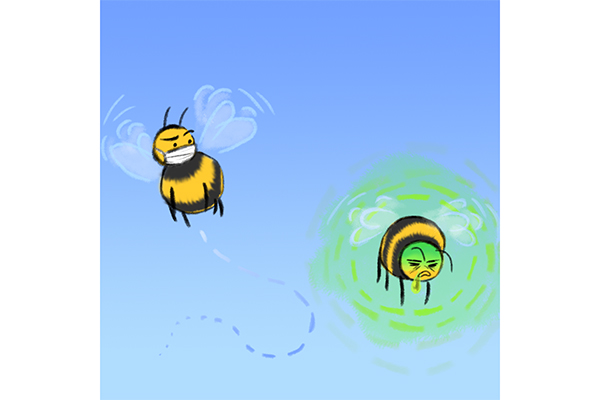Bees social distance during times of illness too, a group of researchers led by a UT alum discovered early this month.
Focusing on nonhuman animals, bats and insects, recent graduate student Sebastian Stockmaier conducted a study examining how nonhuman animals and insects react to illness or infection with social distancing measures seen in humans during the pandemic.
“What we see for these immune-challenged bats is that they're a lot less likely to groom other bats,” Stockmaier said in an audio interview with the College of Natural Sciences.
The study specifically explored different interactions between creatures such as bees and ants. Bees, in order to protect the rest of the hive, would isolate themselves or be forcefully removed from the hive or group.
“Something very similar to social distancing has been shown recently in these garden ants where if you introduce fungus-exposed individuals that are infectious, individuals that are inside the nest will also step away from each other even though they might not be infected,” Stockmaier said.
Dana Hawley, professor of biological sciences at Virginia Tech and who conducted research on social distancing behavior in animals for the study, said staying at home and limiting social interaction is an intuitive behavior seen in many types of animals.
“Looking at nonhuman animals can tell us something about what we have to do as a society to make it such that individuals can behave in ways when they are sick that protect both themselves and society as a whole,” Hawley said.
Eric Shattuck, assistant professor of research and interim director of the Institute for Health Disparities Research at The University of Texas at San Antonio, said he conducted research on social distancing behavior in humans for the study.
Shattuck, a biological anthropologist, provided insight on how animals will socially distance themselves to survive in nature, but humans may resist their own needs.
“There’s one part of the paper where we discuss presenteeism, which is the phenomenon of people who continue to go to work even while they’re sick,” Shattuck said. “In my mind, that’s a really interesting phenomenon because that’s the exact opposite of what we should be doing, but there are a number of reasons why people choose not to listen to their bodies. I think a lot of it comes down to their personal situation.”















